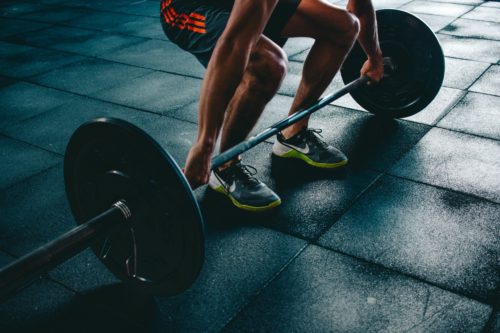MMA sometimes requires cutting weight for the fighters. If you don’t know anything about MMA, the fighters are separated by weight classes. This means that each class has a minimum and maximum weight for the fighters.
This helps to keep it somewhat fair. Otherwise, it wouldn’t be very fair to put a fighter that is 120 pounds against one who is 270 pounds.
What Does “Weight Cutting” Mean?
Many Mixed Martial Arts fighters will have to try weight cutting in order to get into the right weight class before a fight. Basically, this just means that the fighter has to shed a certain number of pounds before a fight in order to stay in the right weight class.
Weight cutting can also give a fighter a huge advantage during the fight. As long as they are the proper mass during the weigh-in, they can put on more pounds afterwards to be stronger. Typically, when you weigh more than someone, you are stronger than them.
How to Cut Weight for MMA
You might be asking yourself, “how do fighters cut weight?” It might seem impossible since most of them don’t have a high percentage of body fat but a substantial amount of muscle. If you are wondering how to cut weight in a healthy way, read on below.
Consider the Risks First
“Cutting weight” typically means that you are trying to lose your water weight before a weigh-in, not lose actual muscle mass and weight. You can run the risk of dehydration if this isn’t done properly.
In fact, you can also damage your kidneys and other organs. Some fighters will also basically starve themselves, which can cause health issues as well.
Carbs and Sodium
A few weeks before your weigh-in, you should reduce and limit the amount of carbs and sodium you consume. Carbs and sodium cause your body to absorb water and you want to focus on shedding water weight at this point.
You don’t want to completely eliminate carbs and sodium from your diet though. Completely cutting these out of your diet might drop your energy levels. After all, carbs will help you maintain energy that you need in order to continue training.
You will need other foods as well to keep up energy levels and stay healthy. This is why you shouldn’t starve yourself to cut weight.
Drink More Water
This might sound a little silly since you are trying to lose water weight. However, you should start increasing your water intake about a week before your weigh-in. Your body is constantly losing water by urinating, sweating, breathing and other bodily functions.
Most fighters will start to drink about 2 gallons a day when they are increasing their water intake. Drinking more water will flush your systems and get rid of excess water weight as well. You will probably need to make more trips to the bathroom, so be prepared for that.
You should start cutting out carbs at this point as well as eat protein-rich foods and green vegetables. When you are drinking more water, avoid drinking too much at once. You want to avoid water intoxication.
Your body will let you know that you drank too much water too fast if you become lethargic, nauseous, or dizzy. Remember that you want to lose weight in a healthy way.
Reduce Calories
You don’t want to completely reduce your calories – you just want to reduce your calories enough that you are burning more than you are taking in. Slowly reducing your calories little by little everyday can help.
Just make sure that you are still eating the nutrients that your body needs in order to stay healthy.
Train, Train, Train
You should continue training because when you sweat, your body is losing water weight. If you continue training, your body will be working hard. You’ll lose weight by sweating and also by burning more calories than the amount you’re eating.

Train – victor-freitas-546919-unsplash
Some Weight Cutting Tips
1. Meal Plan
When you are trying to cut weight, you should have a meal plan. This will help you stay on track with your diet; it will also help keep you focused on meeting your goals.
2. Set Goals and Follow Through
Just like training, you need to stay focused on cutting weight. If you set goals and stay determined to meet them, this will help you significantly.
3. Think About Your Health
There are some risks with cutting your weight, especially if it is done unsafely. You need to think about your health and body first and foremost, so don’t do anything too extreme that can hurt you.
4. Know How to Properly Rehydrate
Since you are cutting water weight, your body is going to lose a lot of the water it needs to properly function. This is why you’ll need to properly rehydrate your body after your weigh-in.
You might think you’re starving after not eating and drinking for a weigh-in, but you don’t want to eat a lot of food at once. After your weigh-in, start by drinking fluids that have nutrients and electrolytes.
After about an hour or so, try to eat a small snack. Once that food settles, you can eat an actual meal again. If you eat too much right away, your body won’t process it properly and you can make yourself sick.
If you are thinking about cutting weight for an MMA weigh-in, there are plenty of ways to do it. Some ways are healthy, but some aren’t. You want to remember your overall health when trying to cut weight.
It takes a lot of discipline and motivation to cut weight. If you want to lose a significant amount of mass, you may want to think about fighting in a different weight class instead. Stay focused and motivated and you will surely reach your goal.